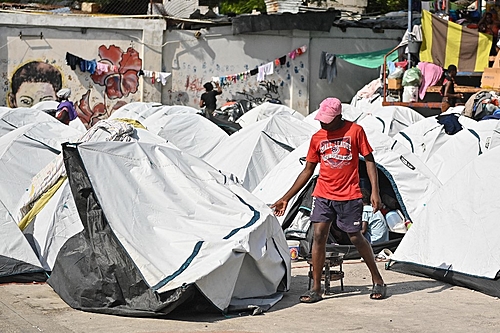
In a speech at the summit of the Community of Latin American and Caribbean States (Celac) this Friday (1), President Luiz Inácio Lula da Silva defended that it is necessary to “act quickly” in relation to the situation of violence faced by the country and emphasized that the issue is not just one of security, “but above all of development”.
“With each day that fighting continues, human suffering, the loss of life and the destruction of homes in Haiti increase. We need to act quickly to alleviate the suffering of a population torn apart by social chaos. For years Brazil has been saying that Haiti’s problem is not only one of security, but above all of development“, said Lula.
The agreement to send police troops from Kenya to Haiti was signed this Friday (1), according to a statement signed by Kenyan President William Ruto. The African head of state and the Prime Minister of Haiti, Ariel Henry, on a visit to Nairobi, “talked about the next steps to allow for an acceleration in the deployment” of the military, says the text. “I take this opportunity to reiterate Kenya’s commitment to contributing to the success of this multinational mission. We believe this is a historic duty, as peace in Haiti is good for the world as a whole,” Ruto said in the statement.
The terms of the agreement were established between delegations from Kenya, the United States and Haiti, who met in Washington on February 13 and 14, where they defined the terms of the reciprocity agreement between Haiti and Kenya, required by the country’s Constitutional Court. African. A Kenyan court decision barred the sending of troops to Haiti at the end of January. The international UN mission led by Kenya will have the support of five other countries. The Bahamas, Bangladesh, Barbados, Benin and Chad have committed to sending security forces to Haiti, Stephane Dujarric, spokesman for the UN secretary general, announced on Thursday (29).
Haiti, the poorest country in the region, faces a chronic humanitarian crisis, worsened by the terror sown by gangs that control entire portions of its territory and by protests demanding the departure of Prime Minister Ariel Henry.
Antigua and Barbuda Prime Minister Gaston Browne announced during Caricom that Henry has agreed to “share power” with the opposition as part of a deal that paves the way for elections within a year. “It is not just about having a provisional power-sharing group to govern Haiti, but rather the issues of institutional strengthening, restoration of the electoral machine, democratic institutions and, at the same time, setting a firm date, possibly within the next 12 months, for the presidential elections”, he stated.
Editing: Matheus Alves de Almeida
Source: www.brasildefato.com.br

